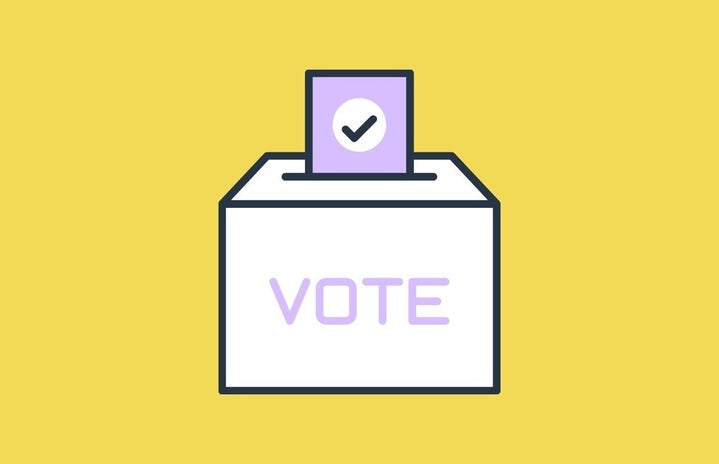The 2020 election is an atypical one. The voting days were delayed, and candidates cannot do their usual campaign on the streets. Set to occur on November 15, the election is marked with the theme of the new coronavirus, in proposals of candidates for mayors or city councilors.
In São Paulo, polls are suggesting four candidates as the main choices of the voters for mayors. In a survey released on October 8 by Datafolha, the federal deputy Celso Russomanno (Republicans) leads, with 27% of voting intentions, followed by the current mayor, Bruno Covas (PSDB), with 21%. Guilherme Boulos (PSOL) appears with 12% and in forth place, Márcio França (PSB), with 8%.
Since the COVID-19 is a hot topic, the educational proposal of these candidates is also affected by the pandemic. Here are some of the mayor candidate’s proposals.
- Celso Russomano (Republicans)
-
Born in São Paulo, graduated in Law at Guarulhos College, the candidate has already been affiliated with the Democrats (DEM), the Brazilian Social Democratic Party (PSDB), the Progressive Party (PP) and the Brazilian Republican Party (PRB), but is currently running for the Republicans. He has already been a candidate for the São Paulo and Santo André city hall and the state governor, and was a federal deputy for the PSDB. He is famous for presenting television programs, such as Aqui Agora, at SBT. He is linked to the theme of consumer law.
Supported by president Jair Bolsonaro (no party), he is leading the polls for the 2020 election. His education plans involve, mainly, what he calls “Educational Recovery Program” that includes a readapting students in school, hiring more teachers, and giving psychological support for both students and professionals. He also defends an implementation of technology in schools, like computers and tablets, and a new system contents that may deepen the students comprehension of the contents.
He promises, in the proposals available in the Higher electoral court, “emergency measures to recover pedagogical lagging during the pandemic; Didactic, methodological and structural modernization, considering the current society” and referring to the implementation of a digital platform, it says “With this tool the student can review content, watch video lessons and other videos that will support the understanding of the subjects. Access to texts, documentaries, reports that enrich the construction of knowledge, broaden the dialogues and the student’s worldview”.
The campaign slogan is “Now it is our turn”
- Bruno Covas (PSDB)
-
The current mayor, formerly vice-mayor of João Doria, (who ran for state governor in 2018, won, and left the office for Covas). He is running for reelection in 2020. Born in Santos, graduated in Law at the University of São Paulo (USP) and in Economics from the Pontifical Catholic University of São Paulo (PUC-SP). Involved with politics from a very young age, he was already a state congressman, secretary of environment for the government of the state of São Paulo, federal congressman, and secretary of subprefectures of São Paulo.
In an article published in the El País newspaper, the author says Covas is an alternative for the polarization between Bolsonaro’s supporters and the left. The slogan of his campaign shows it: “Strength, focus and faith”.
On the matter of education, the candidate says that the schools will only come back, due to coronavirus, with the health area endorsement, and only following the security measures required.
Like his opponent, Covas, on his plans for the government, proposes digital environments in the classrooms, to “make learning more attractive for our children and young”. He says “We want to offer to those kids who go to municipal schools the same quality of teaching of those that go to private schools. For that, we are adopting computerized classrooms in all town schools”.
- Guilherme Boulos (PSOL)
-
Born in São Paulo, graduated in Philosophy at the University of São Paulo. Writer, professor and activist, he is known for coordinating the Movement of Homeless Workers (MTST). He was a presidential candidate in 2018, his entry into politics and, for this year’s mayor election, leads a campaign with the slogan “To turn the game”.
On the matter of education, the candidate promises to guarantee quality public schools for all and defends that the return to classes will only occur when it is safe. Beyond that, he also talks about providing technology and internet for the city classrooms.
A different point of the others is in highlight, though. According to the government plan, Boulos supports an education based on the previous experiences of the students, like the philosophy of the educator Paulo Freire. The plan also contains a defense of “An antiracist, feminist, anti-lgbtfobic, anticapacitist and ecosocialist education”.
When asked about the unevenness of public education, in an interview for Radio BandNews FM, the candidate said: “We will have to make a heavy investment in public education. (…) We need to improve the quality of education, it’s not just the equipment of the schools, it’s not just taking the Internet, improving teachers’ salaries, which is essential to value education professionals, but a part of the curriculum that is outdated. (…) Why is the student not interested? Because it has nothing to do with his life”.
- Márcio França (PSB)
-
Born in Santos, he graduated in Law at the Catholic University of Santos. Affiliated to the PSB (Brazilian Socialist Party), he has been in politics since he was 27 years old. He was once a councilman and mayor of São Vicente and a federal deputy. In São Paulo, he was secretary of tourism and secretary of economic development, science, technology and innovation. In the government of Geraldo Alckmin (as governor of São Paulo, until 2018), França was his vice, and took over as state governor when Alckmin ran for president in the 2018 election. His slogan is “Everything changed. São Paulo has to change”.
The candidate advocates for an actual occupation, by the families, of the physical space of the schools and engaging participation with the education. The schools must, according to him, “reflect the values and culture of our people”.
On his government plan, an increase in the number of schools in the city and better quality for basic education are the top measures to take. Beyond that, the valorization of the teachers is a recurring topic. A highlight is the will to “Expand the number of schools, daycare centers and educational institutions for children with disabilities and zero the row of vacancies in this modality”.
On the matter of reopening schools, he says that “the school year of the children was lost and, for recovery, it will be necessary, as in Health, that the municipal schools and other equipment in the area of Education are open on weekends and holidays”.
Despite the polls, it is still too early to say that there is a winner. With debates cancelled in most television stations, candidates, especially Celso Russomano’s opponents, will depend much more on online campaigns to attract voters. Moreover, there may still be a second round, scheduled for November 29th.
—————————————————————-
The article above was edited by Mel Trench.
Liked this type of content? Check Her Campus Casper Libero home page for more!


